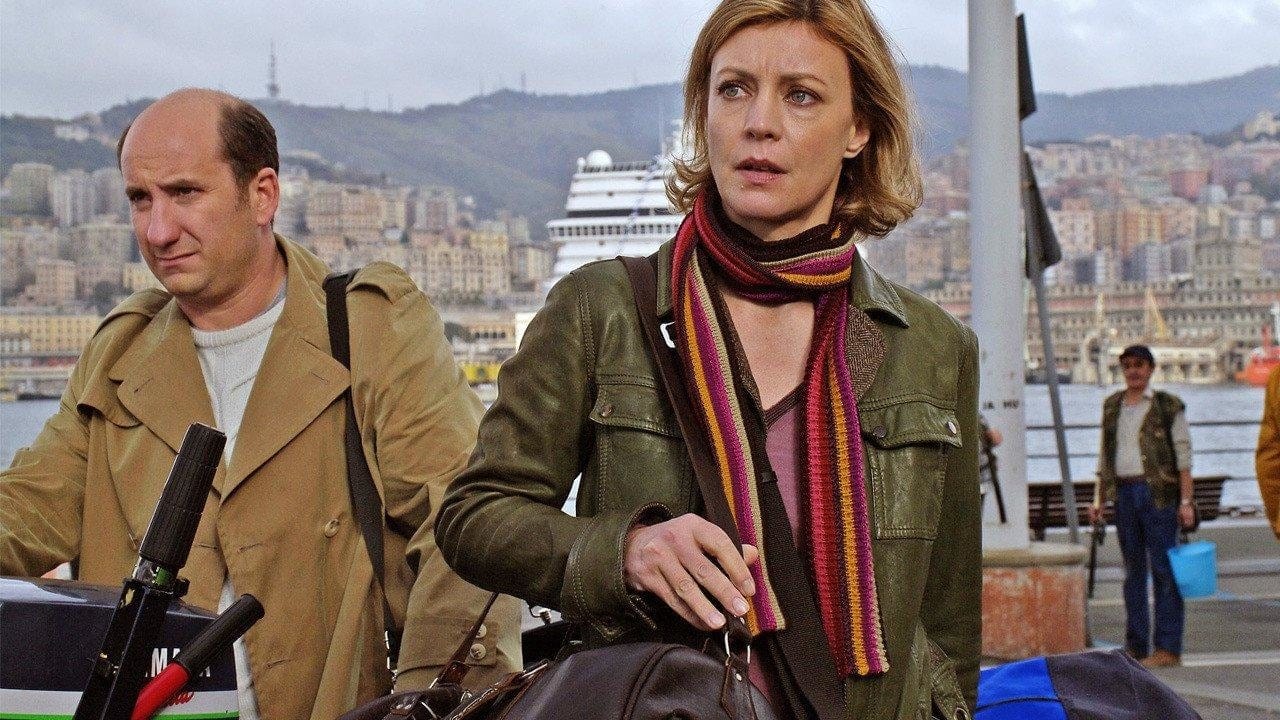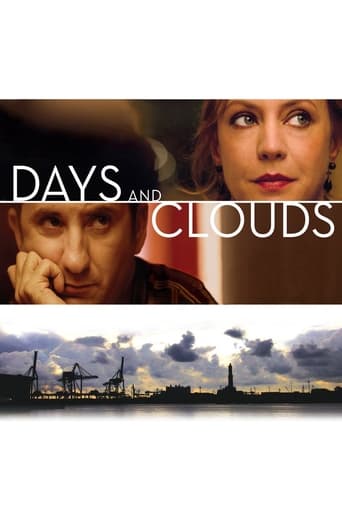



Brilliant and touching
Pretty good movie overall. First half was nothing special but it got better as it went along.
View MoreI have absolutely never seen anything like this movie before. You have to see this movie.
View MoreA great movie, one of the best of this year. There was a bit of confusion at one point in the plot, but nothing serious.
View MoreElsa and Michele are living a comfortable upper middle class life in Genoa ... until Michele is forced out of the company he co-founded. This film examines the effect this event has on Elsa, Michele, their daughter Alice, and their friends. If you are a middle aged person with a good income, then this film will probably touch a raw nerve, since you would have to feel that this could happen to you; if this has happened to you, then you will likely doubly feel the pain.The film is brutally honest as it shows how Elsa and Michele give up their comforts one step at a time. After Elsa recovers from the initial shock, she is quite practical in looking for work, any kind of work. But it's different for Michele. He has been used to being the breadwinner and deals with serious issues like humiliation, wounded pride, and feelings of worthlessness--one day he was a key player in his work and family and the next day he feels he is nothing. He is so embarrassed that he cannot even reveal the truth to his daughter until she makes an independent discovery of it. Friendships are severely impacted. What has happened to Michele and Elsa has happened to thousands since the economic downturn and their reactions are not atypical, but their story is laid out here in a very affecting manner.Antonio Albanese (as Michele) and Margherita Buy (as Elsa) turn in very believable performances. No great tricks in cinematography or time sequencing, just straightforward, solid filmmaking.Life goes on and people cope, but I think it would be difficult to watch this film without responding to its intense emotional content. No matter what your status, it's always hard to take several steps back. Money, work, and status are important and, as illustrated in this film, I think it is the unusual person who can withstand a serious blow in any one of those areas and come out the better for it.
View MoreAfter three movies that elevated him from d'essai circuits in terms of box office results, director Silvio Soldini returns to more dramatic and current themes closer to his debuts. Middle-class families can't afford financial problems, that's seems to be the sense of the movie. Step after step all certainties and habits of a Genova's well off family, crawl down after Michele (Antonio Albanese) lost his work. Soldini as always, has the sensibility and the touch to treat such difficult material, but nevertheless the script (of the same author with Tiziana Leondeff) never reach the audience. The story advances laboriously, the non-core characters are just sketched and stereotyped, and most of all the main character, Antonio Albanese, not has the necessary depth, his Michele seems a man who could not accept the consequences of his actions, ever astonished by the behavior of the rest of human race, including members of his family. Early the movie slips toward a foreseeable descent, tell the truth, in the end there's a bit of relief. Great waste of talent for the performance of Margherita Buy, as always measured and effective. Awful soundtrack, by the way.
View MoreElsa, a woman of a certain age, has been completing her thesis about a minor painter whose work she has been helping to restore. The jury hearing her dissertation is clearly pleased with her findings. Elsa, who is apparently happily married to Michele, an apparent successful executive, is in for a surprise when she gets home. Michele has prepared a party without her knowledge. What Elsa is not ready is for the news she is about to receive from her husband after the festivity is over.Michele has been out of work for a couple of months. Their upper middle class status is about to crash because they have nothing saved for times like the one they are about to face. Michele, who learns about a position in a lower salaried position, wants to give it a try, but Elsa, thinking their situation is only temporary, feels something better is about to happen sooner, rather than later.Elsa is furious when Michale confesses. Why go along with a deception they cannot afford. When reality sets in, she decides to apply for a telemarketing position selling creams to bored housewives on the phone. Michele, on the other hand, has no leads, or prospects in the horizon. Taking a job as a messenger, delivering small packages, takes him into an area where his daughter Alice discovers him riding a motorcycle to her complete shock and dismay.With the help of two former employees, Michele decides to redo the new apartment where he and Elsa are forced to live after selling their own, more palatial home. They are approached by tenants in the housing complex that see an affordable way to get their apartments more livable. Elsa, in turn, finds another part-time job as a secretary for an executive of a shipping company, something that will make her vulnerable to the advances of her younger boss. Elsa and Michele's union seem to be heading for divorce, or at least separation. Fortunately, they find that in spite of all the things that have got in their way, they cannot live without one another.Silvio Soldini, whose "Pane e tulipani" impressed us, is at it again with this story that recalls other films about the same subject. What distinguishes this picture from the rest is the well written story Mr. Soldini and his collaborators created for his audience, notably the intense performances by Margherite Buy, one of the best actresses working in the Italian cinema today, and Antonio Albanese, who makes a dramatic turn from his usual comedic roles. The director takes us to meet a couple during a crisis. We are drawn into their plight because both Elsa and Michele are real people whose pain is about to consume them. Fortunately for them, they find strength in their predicament when some other couple would have packed it in as their predicament becomes all too evident.Genoa is captured in all its splendor by cinematographer Ramiro Civita. The music score plays well in the background, the work of Giovanni Venosta. Ultimately, it is Mr. Soldini's triumph for involving the viewer in a human situation that is not too far fetched and it feels real by the intense portrayal of the two principals and an excellent supporting cast.
View MoreTimes are tough right now, mirroring the era of The Great Depression. Financial security is a ghost, friendships and relationships are tested by walking the razor edge of insolvency, and according to the 'popular movie' polls the escape for many is in the darkened movie houses with comic hero or animal animated mindless safety net entertainment. Not so with the very brilliant film DAYS AND CLOUDS written (with Doriana Leondeff, Francesco Piccolo, and Federica Pontremoli) and directed with immaculate attention to detail by Silvio Soldini (BREAD AND TULIPS, etc). Soldini recreates the global financial nightmare in the form of an examination of one family's fracture and consequences. It resonates despite the depressing story, offering a glimpse into the universal ties that bind us at this moment. Elsa (Margherita Buy) is graduating from Art History and Restoration school and seems to be a woman on top of her league, complete with surprise gifts and a celebration staged by her husband Michele (Antonio Albanese). Waking up the morning after her congratulations party, Elsa is ill with a hangover, but even more shocked when Michele breaks the news to her that he has been out of work for two months, ashamed that he has lost his company and his job, hiding in the couple's boat during the day. There is no money left and the couple must face losing their home and are forced to take on menial tasks to survive. Pride prevents the couple from sharing their financial downfall with friends and with their one child - Alice (Alba Rohrwacher) who has elected not to pursue education in favor of waiting tables in a restaurant she has invested in with friends. The tension of keeping the secret to themselves causes mounting friction between the couple and events that would have never happened had they shared their misfortune with friends and family bring their relationship to a near fatal end. How they survive is touched, quietly and quickly and gently, at film's end. Soldini spares no pain in the responses of his characters' misfortune, but at the same time he allows each character to emerge from ideal married tropes to completely human victims of financial ruin. Buy and Albanese are triumphant in their performances as the married couple caught in the crumble of decline. But there are fine performances by Rohrwacher and Fabio Troiano as her lover Riki, and Carla Signoris as Elsa's closest friend Nadia, and actors playing two ex-employees of Michele who provide a window of friendship in Michele's time of desperate need. The cinematography by Ramiro Cirita and the musical score blending opera and folk music by Giovanni Venosta enhance the motion of the film that though just under two hours in length, appears more succinct. Silvio Soldini has taken a topic that affects us all and polished into a film that is bound to touch every viewer deeply. Highly recommended movie from The Film Movement. Grady Harp
View More